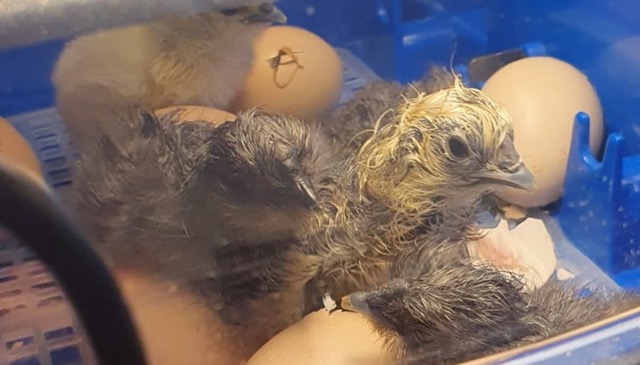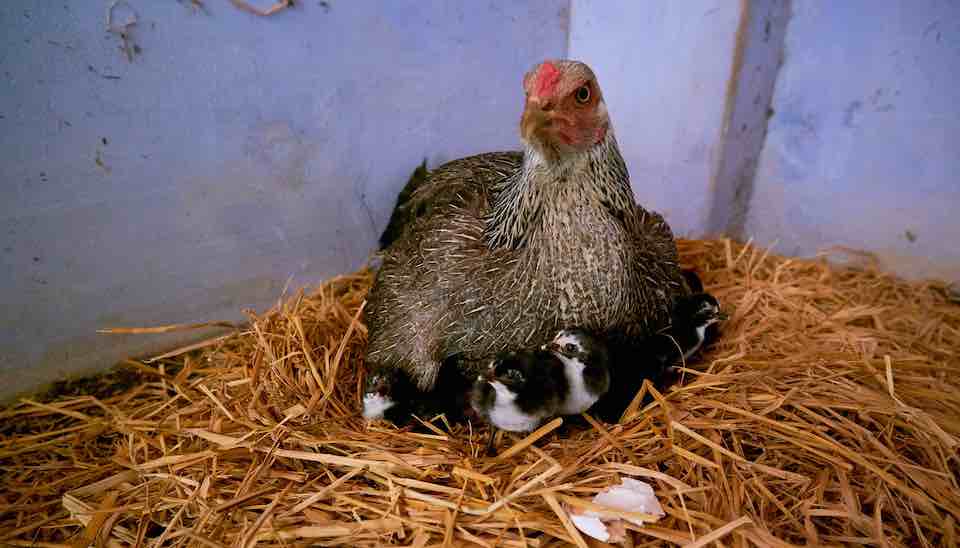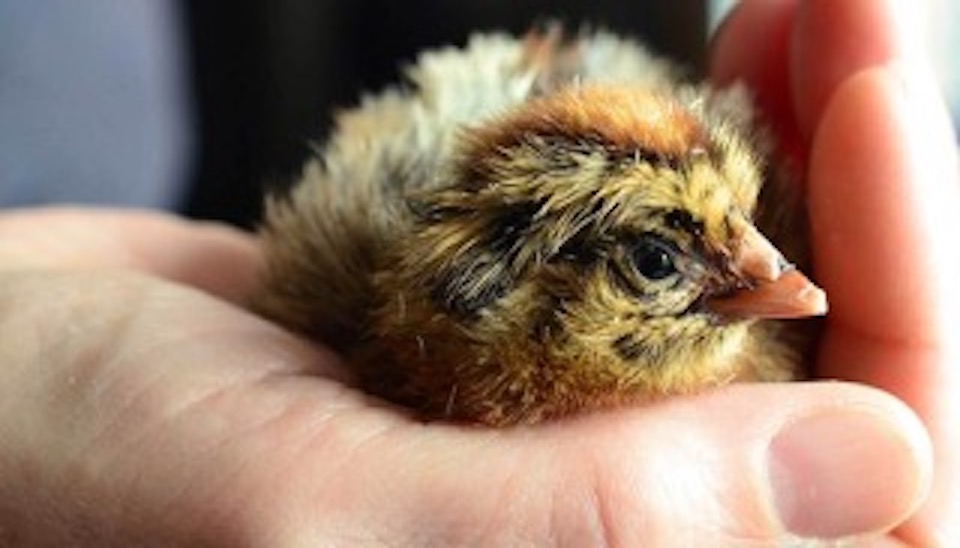Incubating Chicken Eggs Vs Setting a Hen
The pros and cons of incubating chicken eggs versus letting a hen hatch them
There is something magical about newly-hatched chicks. They are so fluffy and cute!
But what is the best way to hatch chicken eggs?
How To: Hatch chicken eggs
There are a variety of different ways to hatch chickens and grow your flock. You can hatch chicken eggs by:
- Placing the eggs in an incubator
- Placing the eggs under a broody hen
Many backyard chicken keepers love incubating eggs. But other chicken keepers swear by letting their birds do the work. So what is the best way to hatch chicken eggs?
We look at the pros and cons of the two methods of hatching chicken eggs so that you can choose the right way to grow your flock.
Whatever you choose, having more chickens is always a pro. So if hatching eggs just isn't for you, we have that covered too!
Option 1: Incubating chicken eggs
Incubating chicken eggs means placing the fertile eggs into an incubator, which is a machine to keep them at a constant temperature and humidity for 21 days. In an incubator, the eggs must be rotated regularly, as a hen would do inside a nest.
We love incubating eggs, but like everything it has its pros and cons.
The benefits of incubating chicken eggs
- Once the eggs are in an automatic incubator, it is pretty much a hands-off process until they hatch
- You can actually watch the chicks hatch, which is magical for kids and adults!
- Newly hatched chicks are just so cute!
- You can choose when to have chicks and don't have to wait for a broody hen
- Incubating eggs indoors is a great way to get a start on springtime in colder climates
- You really get to bond with your chickens and they tend to make better pets because they've been handled from a young age
- It's a great way to start a flock
- Fertilised eggs are cheaper than chicks or birds, and you can try different chicken breeds
- It is easier to keep chicks separate from the flock than a hen and chicks
- There is no risk of laying hens getting into medicated chick starter feed
- You can hatch more chicks at once, saving time and money
- You may be able to rent an incubator if you don't wish to buy one

The downsides of incubating chicken eggs
- You need an incubator and a brooder (although DIY brooders are cheap!)
- It can be more difficult to introduce chicks to the flock without a mother
- Caring for the chicks once they hatch can be a little work
- Although modern incubators are energy efficient, they do use electricity
- If you don't have an automatic incubator, you must rotate the eggs every day
- You will need a plan for the roosters!
Can you hatch eggs without an incubator?
Although there are online instructions for DIY incubators, we don't recommend building your own incubator (brooders on the other hand, are easy to build!). It is difficult to maintain constant temperature and humidity with a DIY incubator. Any fluctuations lead to a poor hatch rate and chicks that do hatch often have deformities.
Option 2: Hatching eggs under a chicken
While it sounds super easy, hatching eggs under a chicken isn't always straightforward!
The benefits of hatching eggs under a chicken
- The chicken does most of the work
- It is very energy efficient (no electricity required)
- You don't need an incubator or a brooder (though you will need a separate pen and nesting area)
- Some hens are fantastic mothers
- The chicks usually turn out to be better foragers
- The mother hen will protect the chicks, meaning introductions to the flock are easier
- Fertile eggs can be had for free if you have a rooster or helpful neighbours

The downsides of hatching eggs under a chicken
- You have to wait for a broody hen
- The fertile eggs need to be set under the hen within a few days of her becoming broody enough to stay on the nest. Hens know how long eggs take to hatch. Most will leave the nest after 3.5 or 4 weeks, so if you wait too long to set the eggs the hen may leave the nest before they hatch.
- Sitting hens don't lay eggs, so production decreases.
- Broodiness is contagious!
- You cannot hatch as many eggs at once, as most chickens can only keep 6-10 eggs warm.
- Many chicken breeds have lost their mothering instincts and modern hybrids have been bred not to be mothers! Hens may not become broody, or if they do they may not stay broody (and on the nest) long enough for the eggs to hatch. Some chickens may accidentally squash new chicks in the nest or even kill their own chicks! And not all hens will do a good job shepherding chicks once they leave the nest.
- Broody hens need a separate nesting area, with food, water and a dust bath.
- Once the chicks hatch, the hen and chicks will need a lot more space (separate from the flock) than just new chicks do
- Although the mother hen can eat medicated chick starter, you will not be able to eat her eggs.
- You need a plan for the roosters!
What about buying chickens?
If you have kids, incubating eggs is a must do at least once! For kids, incubating eggs and raising the chicks is one of the best ways that they can learn about the wonders of nature. Raising chicks also teaches kids responsibility, patience and hygiene! And it opens their eyes to how our food is produced.
For many chicken keepers, hatching chicks is pure delight! There is something magical about watching them hatch.
But hatching chicken eggs isn't for everyone.
You can have almost the same experience of raising chickens by buying day-old chicks. Day-old chicks are also available sexed, which removes the trouble of unwanted roosters! And you won't need an incubator.
Another option is buying older chickens, such as pullets or point of lay birds. This saves time and means you don't need special equipment like a brooder.
Find out what age chickens best suit you with our handy guide.
To learn more about hatching chickens, check out these blog articles:
Happy hatching!
Rachael at Dine a Chook






